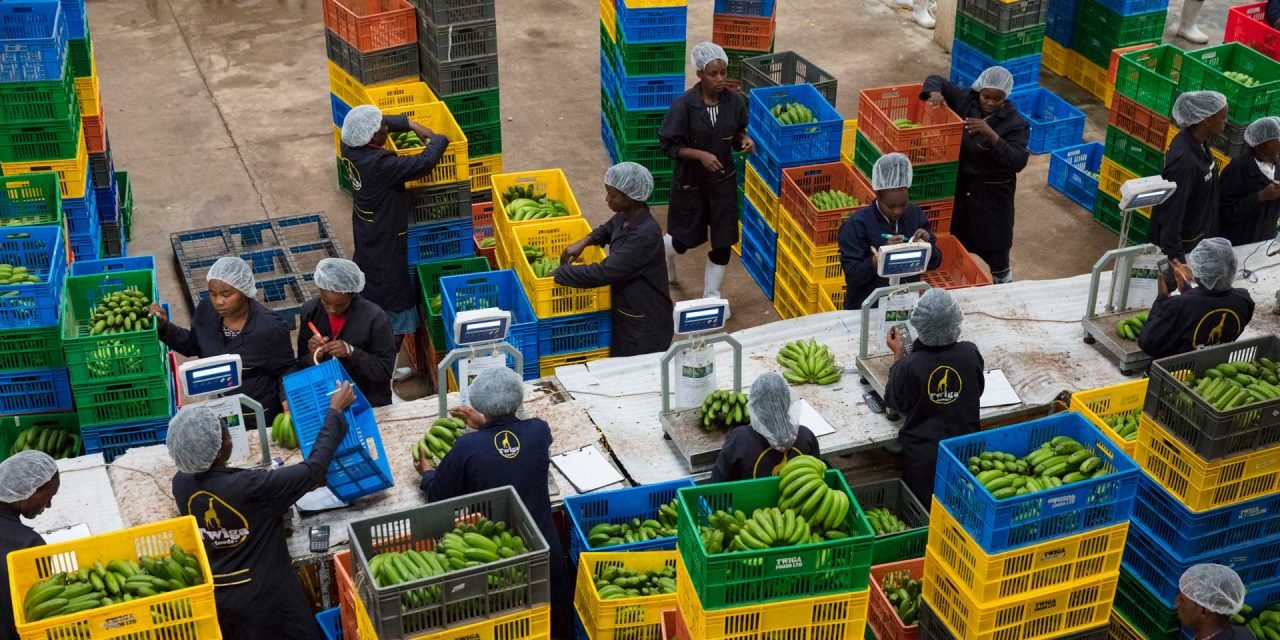AGRA report underscores importance of national priorities in strengthening Africa’s agri-food systems
The Alliance for a Green Revolution in Africa (AGRA) has released its 2024 Annual Report, highlighting how its strategic alignment with national priorities is catalyzing transformative change across the continent’s agri-food systems through targeted investments and technical support.
Under the theme “Country-led, People-powered,” the report underscores AGRA’s accelerated implementation of Strategy 3.0, a model that puts African governments and institutions at the center of agricultural transformation.
In his foreword, H.E. Hailemariam Dessalegn, Former Prime Minister of Ethiopia and Chair of AGRA’s Board of Directors, emphasized the shift toward integrated, country-specific strategies. “2024 was about identifying the most critical binding constraints and opportunities in each country and investing in a coordinated manner to address them,” he stated.
“This approach marks our move beyond fragmented activities toward integrated, results-focused pathways co-developed with governments and aligned with national priorities,” he added.
At the heart of AGRA’s operations are four key pillars: Seed Systems and CESSA, Sustainable Farming, Inclusive Markets and Trade, and Policy and State Capability. These technical areas are designed to address core constraints that limit productivity, resilience, and competitiveness within food systems. In 2024, 61% of AGRA’s portfolio targeted catalytic investments in these areas across 12 African countries.
Climate-Smart Agriculture and Resilience
A defining feature of AGRA’s 2024 work was building resilience to climate, economic, and institutional shocks. In Kenya, the STRAK project—co-implemented with IKEA Foundation and several local organizations—promoted regenerative agriculture across four counties, enabling 118,000+ farmers to adopt practices like mulching and manure application that significantly improved yields and soil health.
In Nigeria, more than 250,000 farmers received advisory services on climate-smart practices and improved varieties. Smallholders like Phoebe Maitala and Charity Ezekiel in Kaduna doubled or tripled their harvests by using AGRA-supported inputs and technologies, with some moving into agri-processing and mentorship.
AGRA also advanced biofortified seed programs in Kenya, Malawi, and Tanzania, producing over 1,925 metric tons of nutrient-rich seeds. These efforts benefited more than 385,000 schoolchildren through fortified school meals, linking nutrition to agricultural resilience.
Technical Approach and Seed System Reform
AGRA strengthened national seed systems as a cornerstone of resilience and growth. Through the Center of Excellence for Seed Systems in Africa (CESSA), AGRA co-developed investment plans with ministries in six countries, including Kenya and Nigeria, to improve access to quality, climate-adapted seeds.
“In 2024, we completed six national seed investment plans and scaled the SeedSAT tool to identify systemic gaps,” noted Alice Ruhweza, AGRA’s new President. “Seed is foundational—no seed, no prosperity. These plans are helping farmers move from subsistence to surplus.”
Country Focus Results and Policy Alignment
Each of AGRA’s 12 focus countries adopted a bespoke “country change narrative” to guide interventions. In Ghana, efforts focused on strengthening rice and soybean value chains and digitizing farmer-market linkages. In Tanzania, AGRA facilitated $129 million in financing for youth access to land and agribusiness development through the AfDB-backed “Building Better Tomorrow” program.
Mozambique advanced policy and legal reforms through a new Seed Law and Investment Plan. Zambia designed a $950 million food systems investment plan, while Uganda improved export competitiveness by enhancing maize regulatory systems, resulting in a 211% increase in structured maize exports.
Inclusive Markets and Agripreneur Success Stories
Inclusive markets remained central to AGRA’s transformation strategy. The organization supported anchor firms like Lersha in Ethiopia, which now connects over 240,000 farmers to mechanization and off-taker markets. In Tanzania, agripreneur Agnes Nzowa turned a $40 investment into a thriving food processing enterprise through AGRA’s YEFFA program.
Women and youth featured prominently in AGRA’s inclusive growth model. VALUE4HER, the flagship women-in-agribusiness platform, has empowered over 3,500 women across Africa by unlocking markets and investment opportunities. Youth-focused programming like YEFFA reached nearly 500,000 young people and embedded their voices in national policy discussions.
Strategic Impact and Partnerships
AGRA’s work supported key continental goals under the Comprehensive Africa Agriculture Development Programme (CAADP) and Sustainable Development Goals (SDGs). The organization played a key role in the Africa Fertilizer and Soil Health Summit, where the Nairobi Declaration committed African states to tripling fertilizer use and restoring 30% of degraded land by 2034.
In 2024, AGRA invested $164 million in programs and disbursed $41.7 million directly to partners. Strategic partnerships were expanded with the World Economic Forum and the Green Climate Fund, where AGRA’s RE-GAIN program was approved to benefit 2.6 million people across seven countries from 2025 onward.
Looking Ahead
In her first report as AGRA President, Alice Ruhweza reflected on the organization’s future: “We’ll continue investing in country-owned solutions that integrate climate resilience, market systems, and nutrition. By working side by side with farmers, governments, and businesses, we are turning farming from a struggle for survival into a thriving enterprise.”



